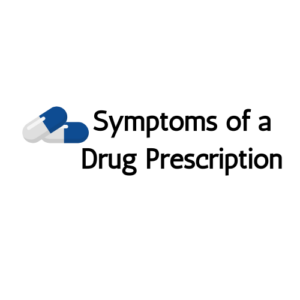Learn More ♥ Live Healthier

Increase Your Awareness with Basic Facts about Prednisone
Nikki and Anne Heart ♥ August 13, 2024

*Picture displayed are of general pills and should not be used as a pill identifier.
The following highlights the facts. More information can be obtained through the sites listed below as well as many other informational sites regarding prescription and over-the-counter drugs. Medication facts can change. Make sure you have all up-to-date information.
Basic Facts about Prednisone
Prednisone, brand names: Rayos®, Cortan®, Deltasone®, Orasone®, Steraped®, Steraped® DS, Prednisone Intensol
Prednisone is in a class of medications called corticosteroids.
- Swallow the delayed release tablet whole, do not chew or crush it.
- Taking the concentrated solution, use the specially marked dropper to measure dose
- You may mix the concentrated solution with juice, flavored liquids or soft foods
Taking Prednisone
- Usually taken with food
- Follow the directions exactly as directed by your prescriber
- Swallow the delayed release tablet whole, do not chew or crush it.
- Taking the concentrated solution, use the specially marked dropper to measure dose
- You may mix the concentrated solution with juice, flavored liquids or soft foods
Prednisone is an FDA-approved, delayed-release corticosteroid indicated as an anti-inflammatory or immunosuppressive agent to treat a broad range of diseases, including:
- immunosuppressive/endocrine
- rheumatic
- collagen
- dermatologic
- allergic states
- ophthalmic
- respiratory
- hematologic
- neoplastic
- edematous
- gastrointestinal
- acute exacerbations of multiple sclerosis
- and used as an anti-inflammatory and an antineoplastic agent.
Prednisone may be prescribed for other uses.
Possible side effects of Prednisone:
- headache
- dizziness
- difficulty falling asleep or staying asleep
- inappropriate happiness
- extreme changes in mood
- changes in personality
- bulging eyes
- acne
- thin, fragile skin
- red or purple blotches or lines under the skin
- slowed healing of cuts and bruises
- increased hair growth
- changes in the way fat is spread around the body
- extreme tiredness
- weak muscles
- irregular or absent menstrual periods
- decreased sexual desire
- heartburn
- increased sweating
Some side effects can be serious. If you experience any of the following symptoms, call your healthcare provider immediately:
- vision problems
- eye pain, redness, or tearing
- sore throat, fever, chills, cough, or other signs of infection
- seizures
- depression
- loss of contact with reality
- confusion
- muscle twitching or tightening
- shaking of the hands that you cannot control
- numbness, burning, or tingling in the face, arms, legs, feet, or hands
- upset stomach
- vomiting
- lightheadedness
- irregular heartbeat
- sudden weight gain
- shortness of breath, especially during the night
- dry, hacking cough
- swelling or pain in the stomach
- swelling of the eyes, face, lips, tongue, throat, arms, hands, feet, ankles, or lower legs
- difficulty breathing or swallowing
- rash
- hives
- itching
Awareness Information for Prednisone
- Inform you doctor of any prescription or nonprescription medications, vitamins, nutritional supplements, or herbal products you are taking or planning to take
- Tell your doctor if you have any infections, including eye or threadworm
- St. John’s wort, cimetidine, aspirin as well as others, may interact with prednisone
- Notify your prescriber if you have diabetes, high blood pressure, emotional problems, mental illness, myasthenia gravis, osteoporosis, tuberculosis, ulcers, liver, kidney, intestinal, heart, thyroid or any other disease.
- Tell your doctor if you are pregnant, plan on becoming pregnant or breast feeding
- Inform all doctors if you are having surgery, including dental surgery, if you are on prednisone or recently stopped
- If you are having skin testing, inform your doctor
- Do not have any vaccinations without informing your prescriber
- Ability to fight infections may be decrease
- Your prescriber may suggest you flower a diet, such as low salt.
There may be other precautions and instructions to be aware of.
Know before, while and after taking Prednisone.
Remember, it never hurts to be informe
Withdrawal from Prednisone
According to the American Addiction Centers, corticosteroids are not believed to be addicting. But because they do affect the amount of cortisol available to the brain, and eventually, the brain will reduce how much cortisol it produces naturally. This can cause withdrawal symptoms
Withdrawal symptoms can include:
- Intense fatigue
- Physical weakness
- Muscle aches
- Joint pain
- Appetite and weight loss
- Nausea and vomiting
- Diarrhea
- Abdominal pain
It is highly recommended to taper off Prednisone.
Sources used:
- MedlinePlus, Prednisone, accessed August 7, 2024.
- NIH, National Library of Medicine, Prednisone, Puckett Y, Gabbar A, Bokhari AA. Prednisone. [Updated 2023 Jul 19]. In: StatPearls [Internet]. Treasure Island (FL): StatPearls Publishing; 2024 Jan-. Available from: https://www.ncbi.nlm.nih.gov/books/NBK534809/
- American Addiction Centers, Corticosteroid Withdrawal, accessed August 7, 2024.

Learn More
♥
Live Healthier

Medical Disclaimer: We share informational resources that are intended to help you with your self-care plan. We are not professionals. We write based on personal experience and personal research.
Nothing on this Website is intended to be taken as medical advice. The information provided on the Website is intended to encourage, not replace, direct patient-health professional relationships. Always consult with your doctor before altering your medications. Adding nutritional supplements may alter the effect of medication. Any medication changes should be done only after proper evaluation and under medical supervision.
General Disclaimer: This site contains links to other internet sites. We are not endorsing any products or services in these sites nor are we endorsing or did we approve information within these sites. Each site contains its own “Privacy Policy”,



